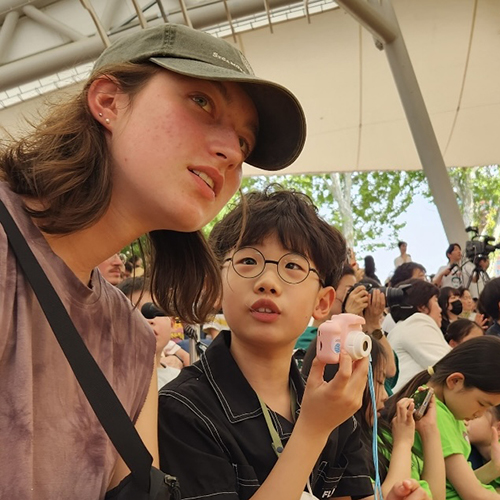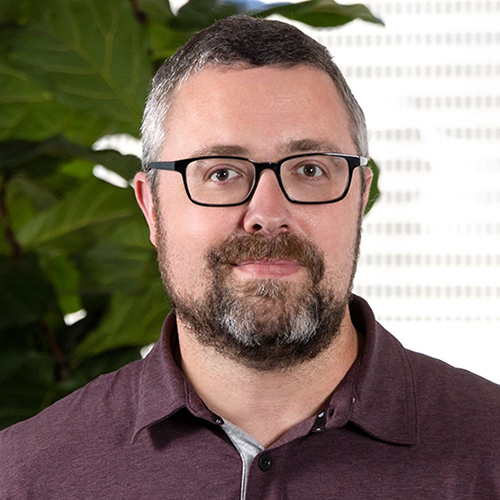During the Depression of the 1930s, Donald Petersen’s father struggled to find work. So when it came time for Petersen to choose a career, he had one overriding concern: stability.
He certainly got that, working for Ford Motor Company for 40 years. But he also managed to rise through the ranks, eventually serving as chairman and CEO
of the company before retiring in 1990.
Hailed as “Most Valuable Person” of 1988 by USA Today and “CEO of the Year” by Chief Executive magazine in 1989, Petersen transformed Ford with his inclusive, team-oriented management style. For the past six years, he has shared his considerable management expertise with another enduring institution: the University of Washinton College of Arts and Sciences. Petersen has served as chair of College’s advisory board since 1999.

Petersen’s involvement with the College has been surprising to some. After all, he earned his BA from the UW in engineering, not a liberal arts discipline. But Petersen is the first to admit that engineering was never his passion.
“I was following in the footsteps of my older brother,” he explains. “It was 1944 and I signed up for the Navy V-12 program, which was designed to generate engineering officers for the Navy.”
The Navy sent Petersen to the UW, where he longed to study subjects beyond engineering.
“Every semester, I requested permission from the Navy captain to change majors,” he recalls with a laugh. “But I was doing just fine, so I was denied every semester. At some point I realized that I was going to have a degree in engineering whether I wanted one or not.
“I would have loved to have studied in the College of Arts and Sciences, taking the time to find out what was of interest to me,” says Petersen. “I didn’t have the chance. My only exposure to the humanities was an English literature course for engineering majors, taught by Amy Violet Hall. It was a great class. It’s very telling that she is the only professor whose name I remember from my years at the UW.”
After graduating in 1946, Petersen attended boot camp and basic training, then worked on a farm to earn money for Stanford Business School. “I thought I’d be a mediocre engineer and needed another wing to fly on,” he says of the MBA he earned in 1949. He joined Ford as a product planner and developer the same year.
Although Petersen never worked as an engineer, his engineering background helped immensely at Ford. “I never actually designed a gear or a piston,” he says, “but it helped to speak the language—it helped to understand the problems and issues the engineers faced.”
Which Ford car does he consider most memorable? The Mustang was “just an instant hit,” says Petersen, who headed product planning when the Mustang was born. But he was personally proudest of the 1965 Ford.
“In a sea of growth in size and weight of new cars, I managed to get the ‘65 Ford more roomy inside, smaller outside, and lighter overall. I felt so good about it. But it was hardly noticed because the success of the Mustang was so overwhelming.”
Petersen’s management style has been similarly successful but understated. Unlike the flashy management “stars” that reigned at Ford, who promoted what Petersen describes as a “dog-eat-dog” atmosphere, Petersen involved employees in decisions that affected them.
“I made a conscious effort to honor the professionalism of the people in the organization,” he says. “I went to each group, asking ‘What do you think?’ I assume that people are right and good in their motivation and will do well.”
Eventually Petersen’s quiet leadership was recognized. In 1980—when Ford “had really fallen apart”—he was elected president of the company; he was named chairman and CEO in 1985. He made teamwork and quality his top priorities and managed to turn Ford around. Forbes magazine described the company as “restored to health and vigor” at the time of Petersen’s retirement in 1990.
“Quiet leadership” is an apt description of Petersen’s volunteerism at the UW as well. For his commitment to the University over the past three decades, he received the Gates Volunteer Service Award in 2004, which recognizes outstanding volunteers who have advanced the UW through dedication and personal involvement.
Petersen became reacquainted with the University in the early 1970s, first through the Business School and then the College of Engineering. When UW President William Gerberding asked Petersen to co-chair the University’s first capital campaign (1987-1992), he agreed to take on the major role—and made a $1 million gift as well.
When he retired from Ford, the company made its own $1 million contribution in Petersen’s honor, which has been used to create endowed faculty professorships and fellowships in the arts.
Then, in 1999, Petersen was asked to chair the board of the College of Arts and Sciences.
“I wondered, ‘Why pick me?’” he recalls. “The answer was size. It’s a very large college, with more than 900 faculty and 24,000 students. [Dean] David Hodge thought I could offer some guidance in dealing with an organization of that size and nature.”
Petersen began by asking important questions about quality and goals. He also hooked Hodge up with renowned management expert Peter Drucker to discuss leadership in academia.
“Don has been absolutely phenomenal as head of the board,” says Hodge. “There is no way that I can overstate the importance of his high standards for the rest of us. He’d ask, ‘What does excellence mean? Are you pushing hard? Are you thinking big? Are you thinking long term?’”
In September, Petersen will step down as chair of the board after six years in that leadership position. He will continue as co-chair of the current College of Arts and Sciences campaign, along with Maggie Walker, and as an active board member. And he has pledged another $1 million for the College in the current Campaign UW: Creating Futures.
That’s all in addition to making an annual $20,000 gift to the College’s Fund for Excellence for many years. Annual gifts are used for a variety of projects, at the discretion of the dean.
“I think it’s important to continue with annual gifts, even during a capital campaign,” says Petersen. “That sort of ongoing giving provides flexibility as
needs arise.”
David Hodge couldn’t have stated it better himself.
“Don came to his leadership role in the College with minimal exposure to the liberal arts,” says Hodge, “but he quickly learned what the College is all about—and then helped improve it. We’re honored to have his support.”
More Stories

Finding Family in Korea Through Language & Plants
Through her love of languages and plants — and some serendipity — UW junior Katie Ruesink connected with a Korean family while studying in Seoul.

Working Toward Responsible AI
Artificial intelligence (AI) is an essential tool at Indeed, a global job-matching and hiring platform. Trey Causey (2009) works to ensure that the company's AI promotes equity and fairness.

Celebrating Contemporary Indigenous Music
Markus Teuton, a musician and citizen of Cherokee Nation, explores contemporary Indigenous music through his academic work and as host of “Indigenous Jazz,” a radio show.